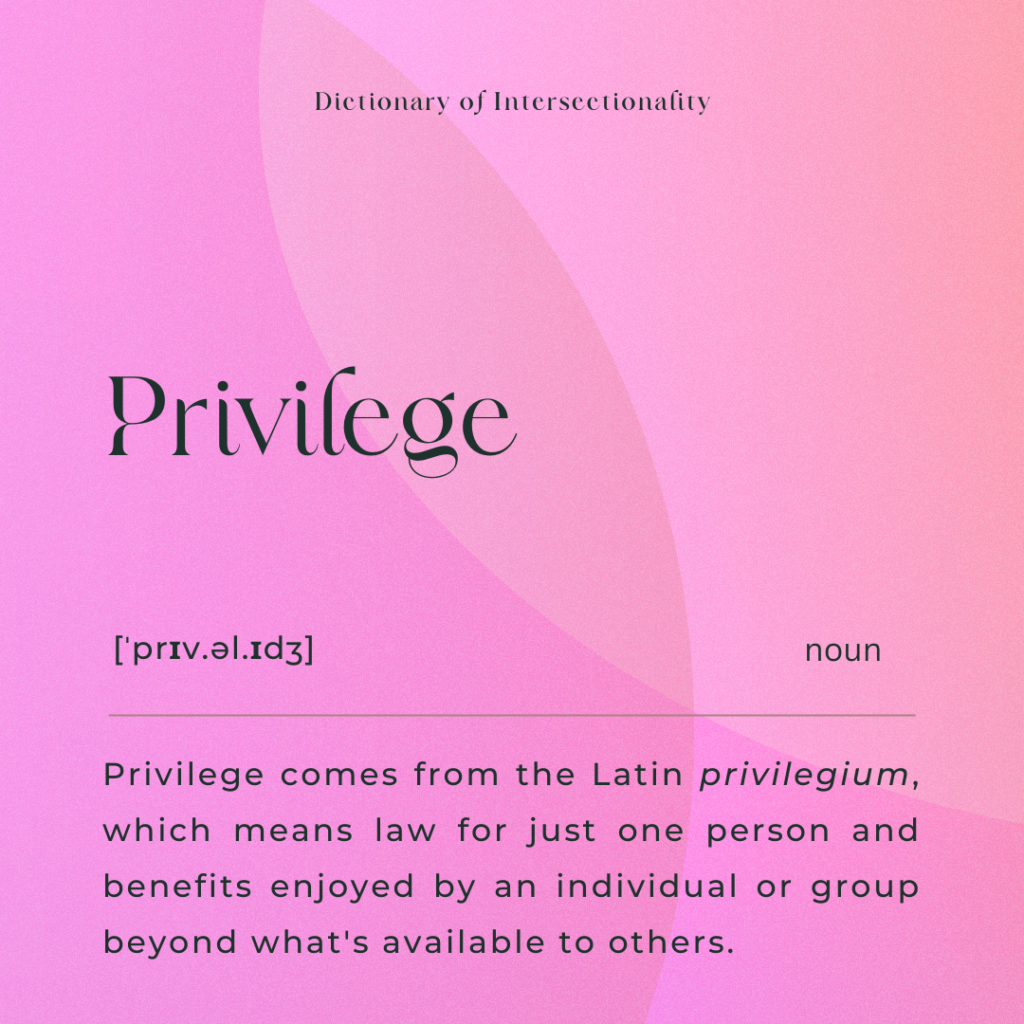
Privilege comes from Latin privilegium, which means law for just one person, and benefits enjoyed by an individual or group beyond what’s available to others.
Privilege describes benefits that belong to people because they fit into a specific social group or have certain dimensions to their identity. You can have privileges based on race, gender, sexual orientation, ability, religion, wealth, and class, among many other characteristics.
Gender privilege usually refers to male privilege, which is a set of privileges distributed to men on the basis of their gender. Male privilege refers to the sociological concept that men are automatically granted certain privileges and advantages in politics, society, and the workplace based entirely on their gender.
Feminists and other concerned groups perceive gender inequality and hope to challenge the preconceived values and notions that enable male privilege and the inherently patriarchal nature of society.
See more resources
Oluo, I. (n.d.). Day 3: What Is Privilege? United Way for Southeastern Michigan. Retrieved January 3, 2023, from https://unitedwaysem.org/equity_challenge/day-3-what-is-privilege/
Privilege… What Does it Mean? (n.d.). uca.edu. Retrieved January 3, 2023, from https://uca.edu/engagement/files/2017/11/Privilege-What-Does-It-Mean-Handout.pdf
